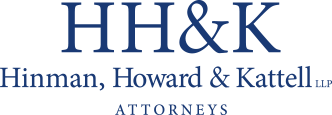
Dear Clients and Friends:
On May 25, 2021, New York State Governor Andrew Cuomo announced the $800 Million Small Business Recovery Grant Program (the “Program”) aimed at providing much-needed assistance to eligible small businesses, micro-businesses and for-profit independent arts and cultural organizations in New York State that have been negatively impacted by COVID-19. This Client Alert provides a general summary of the Program. This information is not legal advice and may not be suitable for all client situations. As always, if you would like specific legal assistance with respect to these programs or any other matters, please do not hesitate to contact your HH&K attorney.
Program Eligibility
“Eligible Applicants” include Small Businesses, Micro-Businesses and For-Profit Independent Arts and Cultural Organizations that were in operation in NYS before March 1, 2019 and remain viable and operational as of the date of application for a Program grant. To be eligible, businesses must be incorporated in NYS, licensed to do business in NYS, independently owned and operated and not dominant in their field. Small Businesses and For-Profit Independent Arts and Cultural Organizations must employ 100 or less persons. Micro-Businesses must employ or 10 or less persons.
There are various other requirements that Eligible Applicants must meet to qualify for a Program grant, which include, inter alia, the following:
- 2019 or 2020 Gross Receipts between $25,000 and $500,000 per annum;
- Positive net profit ($1 or greater) on 2019 business return;
- Total expenses on 2020 business income return are greater than the grant amounts; and
- At least 25% loss in annual gross receipts from 2019 to 2020.
The Program is intended to provide assistance for businesses that did not qualify for, or were unable to obtain sufficient business assistance from, other available federal COVID-19 economic recovery or business assistance grant programs, including loans forgiven under the federal Paycheck Protection Program (“PPP”). Accordingly, the only federal assistance that Eligible Applicants may have received is the following:
- PPP loans totaling $100,000 or less;
- COVID-19 EIDL Advance Grant of $10,000 or less;
- COVID-19 EIDL Supplemental Targeted Advance Grant of $5,000 or less; or
- SBA Shuttered Venue Operators Grant of $150,000 or less.
Businesses that are currently ineligible to receive funds under the Program include:
- All non-profits, churches, and other religious institutions;
- Government-owned entities or elected official offices;
- Businesses primarily engaged in political or lobbying activities;
- Recipients of awards from the SBA Restaurant Revitalization Fund Grant Program;
- Landlords and passive real estate income businesses; and
- Illegal businesses or enterprises.
Grant Amounts and Use of Funds
Grant amounts will vary from applicant to applicant as they are based upon a business’ annual gross receipts for 2019 as follows:
| Annual Gross Receipts (2019) | Award |
| $25,000 – $49,999 | $5,000 |
| $50,000 – $99,000 | $10,000 |
| $100,000 – $500,000 | 10% of gross receipts up to $50,000 |
Program funds must be used for the following COVID-19-related losses or businesses expenses incurred between March 1, 2020 and April 1, 2021 (“Eligible Expenses”):
- Payroll costs
- Commercial rent or mortgage payments for NYS-based property (no pre-payment)
- Payment or local property or school taxes associated with a small business location in NYS;
- Insurance costs;
- Utility costs;
- Costs of PPE necessary to protect worker and consumer health and safety;
- Supplies and materials necessary for COVID-10 health and safety protocols; or
- Other documented COVID-19 costs as approved by Empire State Development.
Program grants may only be used to cover Eligible Expenses and may not be used to re-pay or pay down any portion of a loan obtained through a federal COVID-19 relief package for business assistance or any NYS business assistance programs.
Other Program Information, Including How to Apply
As part of the application process, all business must be able to show documented proof of loss of gross receipts or other economic hardship by providing their 2019 and 2020 business income tax returns. All Eligible Applicants must also provide information on business owners and proof of business location and current operation. Additional information regarding the Program, as well as the link to the application portal is available here: https://nysmallbusinessrecovery.com/.
Due to a limited amount of funding and the high volume of requests expected, an Eligible Applicant’s business type, geography and industry may factor into its ability to receive a grant. NYS has indicated that priority will be given to socially and economically disadvantaged business owners including, but not limited to, minority and women-owned business enterprises, service-disabled veteran-owned businesses, veteran-owned businesses, and businesses located in communities that were economically distressed prior to March 1, 2020, as determined by the most recent Census data.
Contact Your HH&K Attorney for Legal Guidance
This information is not legal advice and may not be suitable for all client situations. This Client Alert provides general information regarding the NYS Small Business Recovery Grant Program and does not outline all of the important considerations related thereto.
This Client Alert is not a substitute for legal guidance regarding program details and how those may be applicable to your business. As always, if we can be of assistance with these programs or any other matters, please do not hesitate to contact your HH&K attorney.
For a Printable version, click here.
Copyright © 2021 by Hinman, Howard & Kattell LLP. This Client Alert is provided as a general information service to clients and friends of Hinman, Howard & Kattell, LLP. It should not be construed as, and does not constitute legal advice on any specific matter, nor does this message create an attorney-client relationship. These materials may be considered Attorney Advertising in some states.

